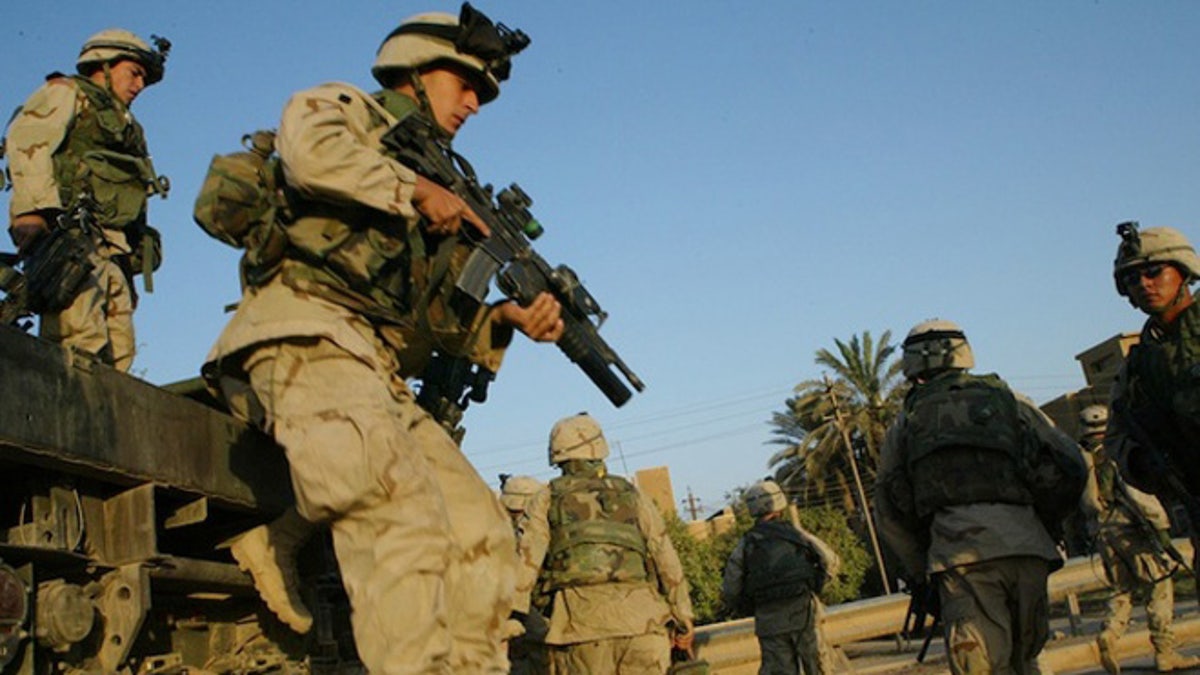
Veterans are being victimized by poor record keeping. (AP)
Lousy record keeping by the military is hurting veterans who need to prove their sacrifice in order to access the benefits they've earned, according to a report.
Much of the problem arose from the military's switch from paper to digital records in the early 1990s, according to the probe by Propublica and the Seattle Times. Many records, especially from the Gulf War, were lost, leaving veterans unable to produce documentation needed for such basic benefits as disability. But the report also found that the military has also lost records from the current war in Afghanistan.
"I can't even start to describe the dimensions of the problem," said Conrad C. Crane, director of the U.S. Army's Military History Institute. "I fear we're never really going to know clearly what happened in Iraq and Afghanistan, because we don't have the records."
[pullquote]
According to the two news agencies scores of field reports, including after-action write-ups, intelligence reports and daily war zone accounts, were simply lost. One brigade, the National Guard’s 81st combat team, did not even keep day-to-day records from two tours in Iraq.
Disabled veterans who are having difficulty documenting combat injuries, and in turn, not getting access to disability benefits are the biggest casualties of the sloppy record-keeping.
The U.S. Army, which has the biggest record-keeping deficiencies, has said that it is taking necessary steps to improve document tracking with more training and guidance from top commanders. But the lapse may have stemmed from lead authority Central Command (Centcom) in Iraq, which had lost records, according to documents obtained by Propublica.
In Baghdad, Centcom and the Army disagreed about which was responsible for keeping records, and confusion about classified field records being transported back to the U.S. led to some units erasing computer hard drives when they rotated tours of duty, the study showed.
Until 2008, dozens of Army units deployed in Iraq and Afghanistan either had no field records or lacked sufficient, according to the documents. Full units deployed since 2003 until 2008 could not produce records, documents from the U.S. Army Center of Military History show.
The Pentagon was made aware in 2005 that Army units weren't turning in records for storage to a central computer system created after a similar record-keeping issue during the Gulf War, according to the news sites.
Sen. Patty Murray, D-Wash., who chairs the Senate Committee on Veterans' Affairs, asked Defense Secretary Leon Panetta to report on efforts to find and collect field records after seeing the findings of the investigation by the Seattle Times and Propublica.
"Iraq and Afghanistan veterans who are unable to document the location and functions of their military units could face the same type of problems experienced by Cold War veterans exposed to radiation, Vietnam-era veterans exposed to herbicides and Gulf War veterans exposed to various environmental hazards," Murray said in a statement.

